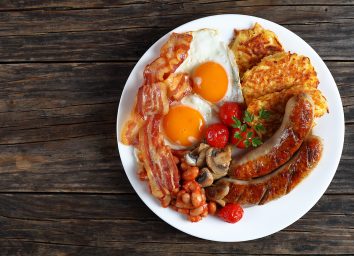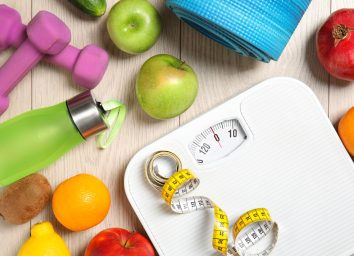The Best Fruits to Shrink Belly Fat, Says Science
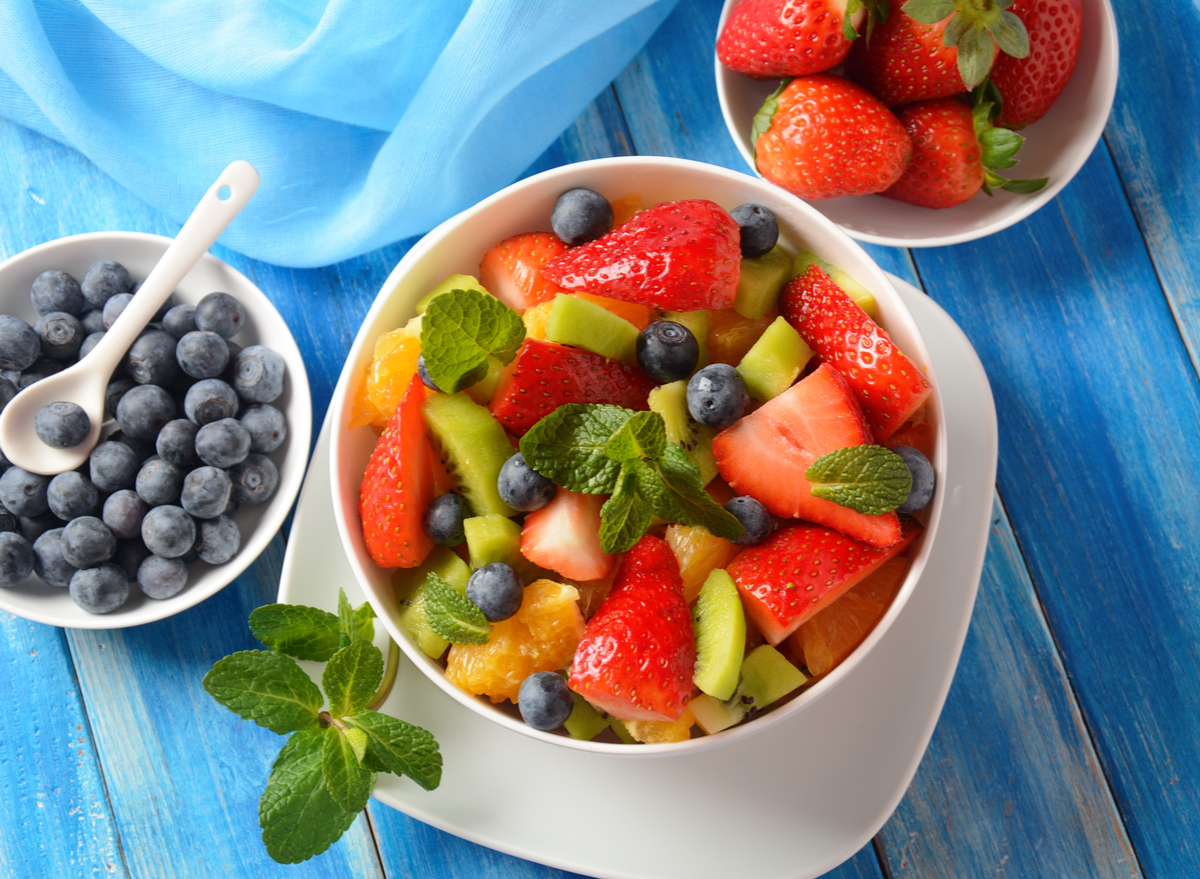
The low-carb diet craze has bruised fruit's reputation as a tasty way to keep the doctor away. Yes, some fruits are high in carbohydrates and natural sugars. No, that's not a reason to avoid them.
Fruit supplies you with so many healthy nutrients and cancer-fighting antioxidants, they shouldn't be ignored by the carb-phobic. In fact, shunning fruit may make it harder to lose weight.
"Fresh, whole fruits help reduce belly fat and help with weight loss because they are naturally low in calories, high in volume because of the naturally occurring water in them, and are anti-inflammatory, which can help in fat loss," says Dana Ellis Hunnes, PhD, MPH, RD, a senior dietitian at UCLA Medical Center and author of the new book Recipe for Survival.
"Inflammation increases fat deposition in the body, especially in the abdomen region, while anti-inflammatory foods, like fruits, can help burn fat in those regions."
If you want to get back on the fruit wagon, which fruits are the best?
"Pretty much, any fresh fruit is good for weight loss and health, because of their water content and low-calorie content," says Hunnes, who is also an environmentalist studying climate change. She advises avoiding dried fruit because they are calories dense, having the water dehydrated out of them. Also, nix other processed fruits that have been turned into juice or candy because they have been stripped of health benefits and are "just concentrated sugar at that point," she says.
Here are some suggestions for the best fruits to shrink belly fat, according to science. Read on, and for more on how to eat healthy, don't miss Eating Habits to Lose Abdominal Fat As You Age, Say Dietitians.
Apples
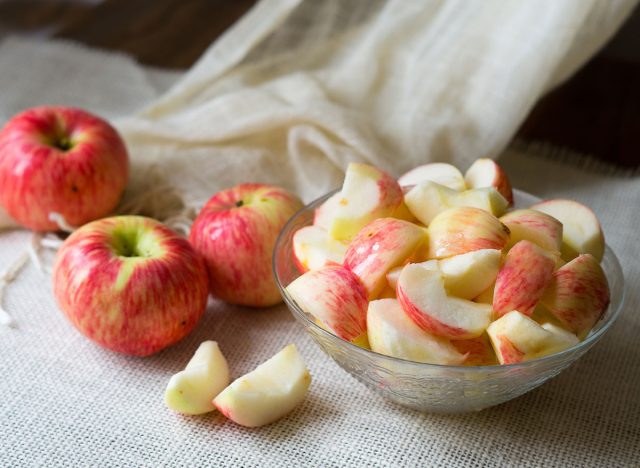
Apples are so famous for being loaded with anti-cancer compounds that their ability to restore the microbial balance in your gut is often overlooked. The fiber and polyphenols in the skin and flesh of whole apples are fermented in the colon where they fuel the growth of healthy bacteria, which helps to reduce the inflammation that contributes to obesity. Scientists note that obese people tend to have out-of-balance guts.
Berries
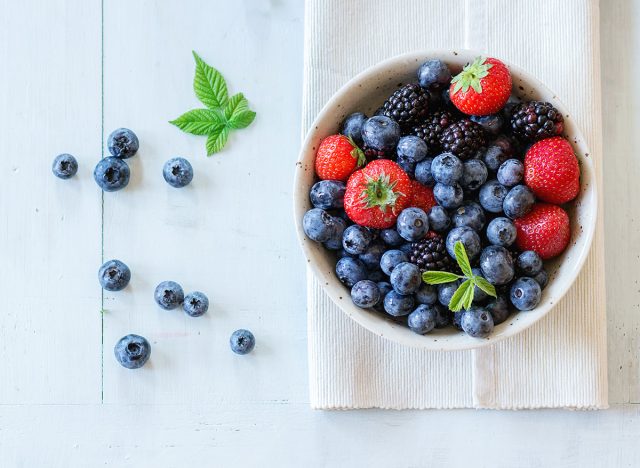
You don't need to be convinced that a handful of blueberries is healthier than a handful of Gummy Bears. But check out this evidence suggesting that the fruit eaten as an afternoon snack may keep you from overeating a pasta dinner:
In a small study in the journal Appetite, women under the age of 30 were given either a snack of mixed berries or a snack of candy containing the same number of calories as the fruit. Sixty minutes later, the women were fed a pasta dinner, and researchers measured how much they ate. It turned out that the women who snacked on berries consumed an average of 133 fewer calories at dinner, leading the scientists to conclude that snacking on berries before dinner could be a simple method for weight management.
Grapefruit
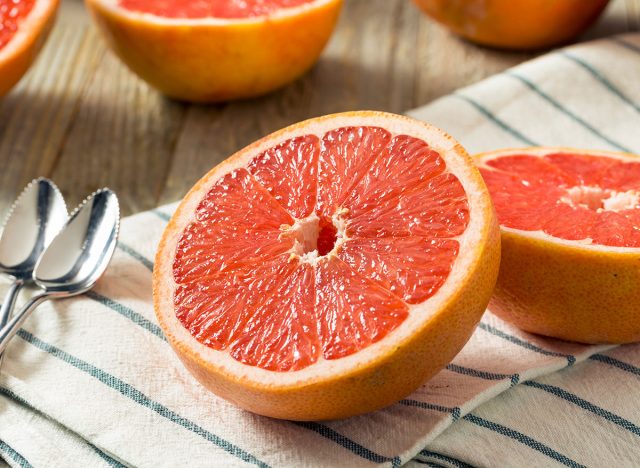
A half of a grapefruit contains only about 40 calories and nearly 4.5 grams of pectin, a soluble fiber known for its ability to reduce cholesterol levels. "Due to its antioxidant components, grapefruit has been shown in studies to be associated with greater rates of weight loss," says Brittany Lubeck, MS, RD, a nutritional consultant for OhSoSpotless.com. The Journal of Medicinal Food found that eating half of a fresh grapefruit (about 40 calories) before meals was associated with significant weight loss, an average of 3.5 pounds in 12 weeks. Insulin resistance also was improved by eating fresh grapefruit.
Avocado
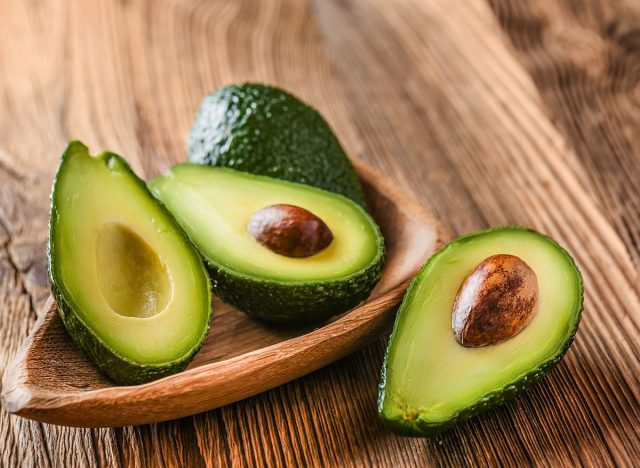
"It's easy to forget that avocados are technically fruits, but regardless of their designation, avocados have also been found to support weight loss," says Lubeck. The fiber and monounsaturated fats from eating one avocado daily improve healthy gut microbiota and help with weight loss, according to a 2019 study. In addition, research in the Journal of the American Heart Association demonstrated that eating one avocado a day as part of a moderate fat diet was associated with decreased hunger as well as lowering LDL cholesterol, especially the small-dense LDL that's most dangerous to heart health.
Watermelon
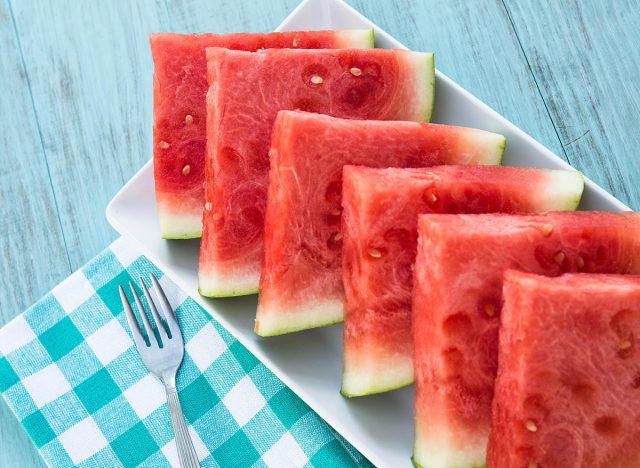
Eating your water is a good way to fill up before a meal. That's where watermelon comes in. Even though it's sweet, watermelon is mostly water, about 94% water. No wonder it's only about 40 calories per cup and a good dessert option for people looking to lose weight.
A 2019 study in the journal Nutrients involving overweight people who ate 2 cups of diced fresh watermelon a day for four weeks and then a low-calorie cookie of the calorie equivalent of the watermelon during a different four weeks, found that hunger was significantly reduced only after eating the fruit. In addition, subjects' waist-to-hip ratio was lower at week four of the watermelon test than it was at week four of the cookie-eating segment of the experiment.
And for more, check out these One Major Side Effect of Eating Watermelon, Says Dietitian.

